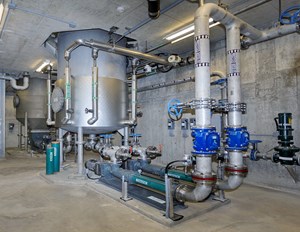Biosolids Management
Published on by WTP Operations Manager, Employee at Jobs and Scholarships in Technology
The environmental and social benefits of implementing Lystek Thermal Hydrolysisare the re-use of bio-nutrients and a greatly improved odor control system
The City of St Thomas has formally approved plans to implement Lystek Thermal Hydrolysis solutions for biosolids management. The city's current plant is a conventional wastewater treatment facility. It provides wastewater services to St. Thomas and the surrounding area. Wastewater flows through the city’s sanitary sewer systems and 12 pumping stations and is collected at the WPCP for treatment.
 With a current, rated average daily capacity of approximately 27,300 cubic meters or 7,212,000 U.S. gallons per day, wastewater is treated and subsequently safely released to the local waterway under the strict requirements of the Ministry of the Environment.
With a current, rated average daily capacity of approximately 27,300 cubic meters or 7,212,000 U.S. gallons per day, wastewater is treated and subsequently safely released to the local waterway under the strict requirements of the Ministry of the Environment.
Historically, the St. Thomas WPCP has utilized anaerobic digestion to process their biosolids. After digestion, the material is dewatered and transported to landfill. However, forward looking city staff were concerned with the general "health and shape" of their existing digesters and they wanted a better, more sustainable, year-round management solution for their community.
Lystek solutions would be at least 40% more cost effective than anaerobic digestion. The city decided to engage Lystek to design and build this new system and to develop and implement a sustainable long-term biosolids management program; a program that will provide the lowest life cycle cost to the city and service its future growth projections while producing a highly desired product and diverting valuable, organic material from landfill.
Source: Nasdaq
Media
Taxonomy
- Technology
- Water & Wastewater Treatment
- Environmental